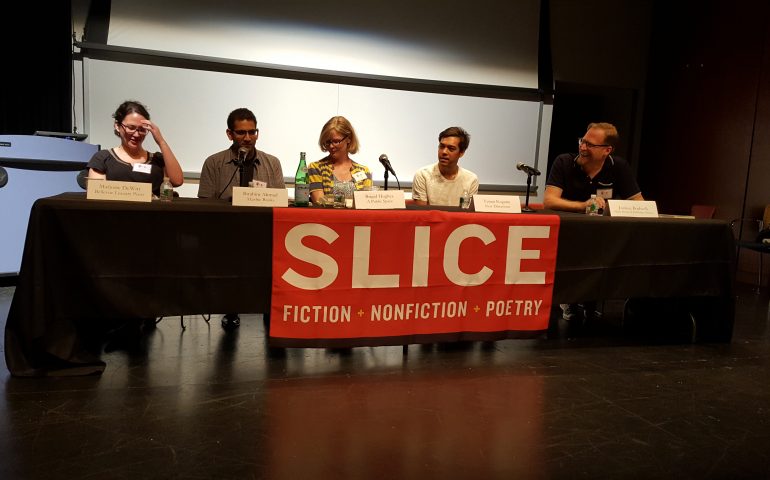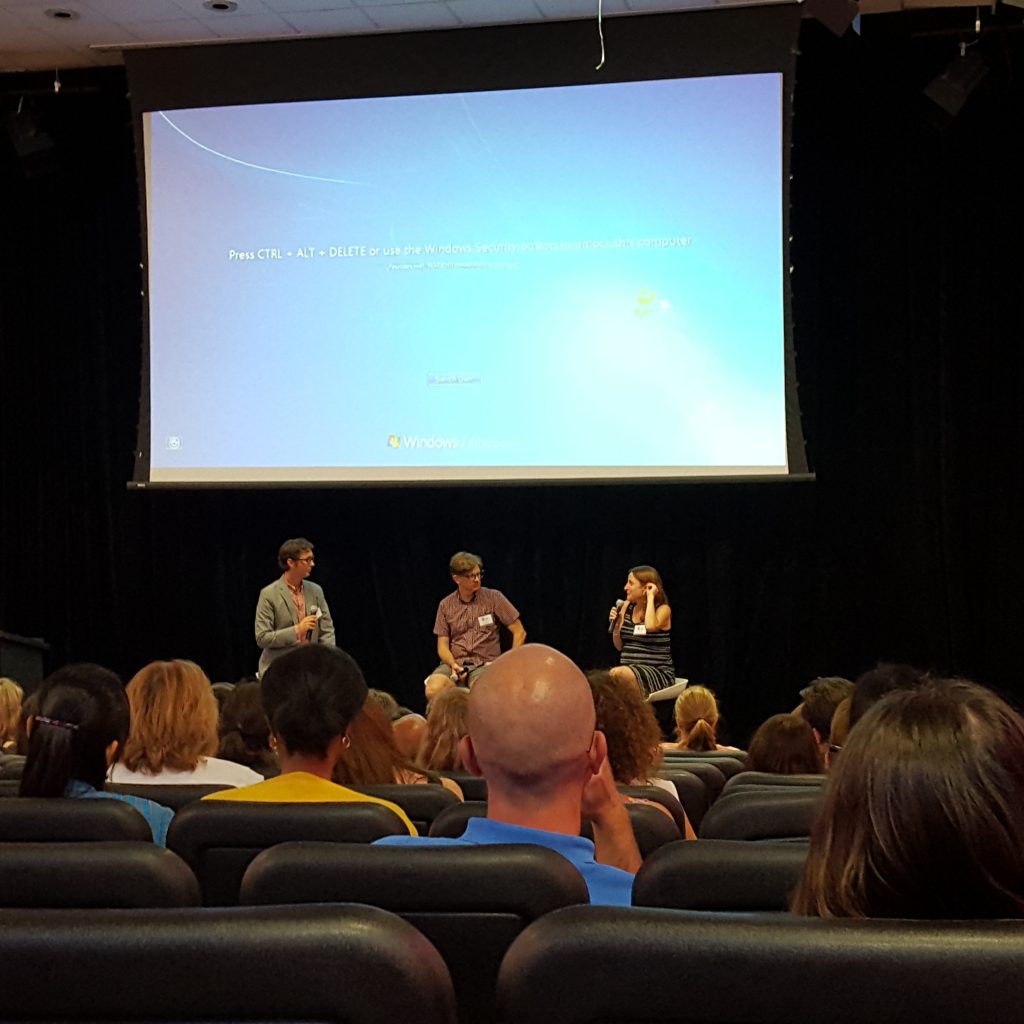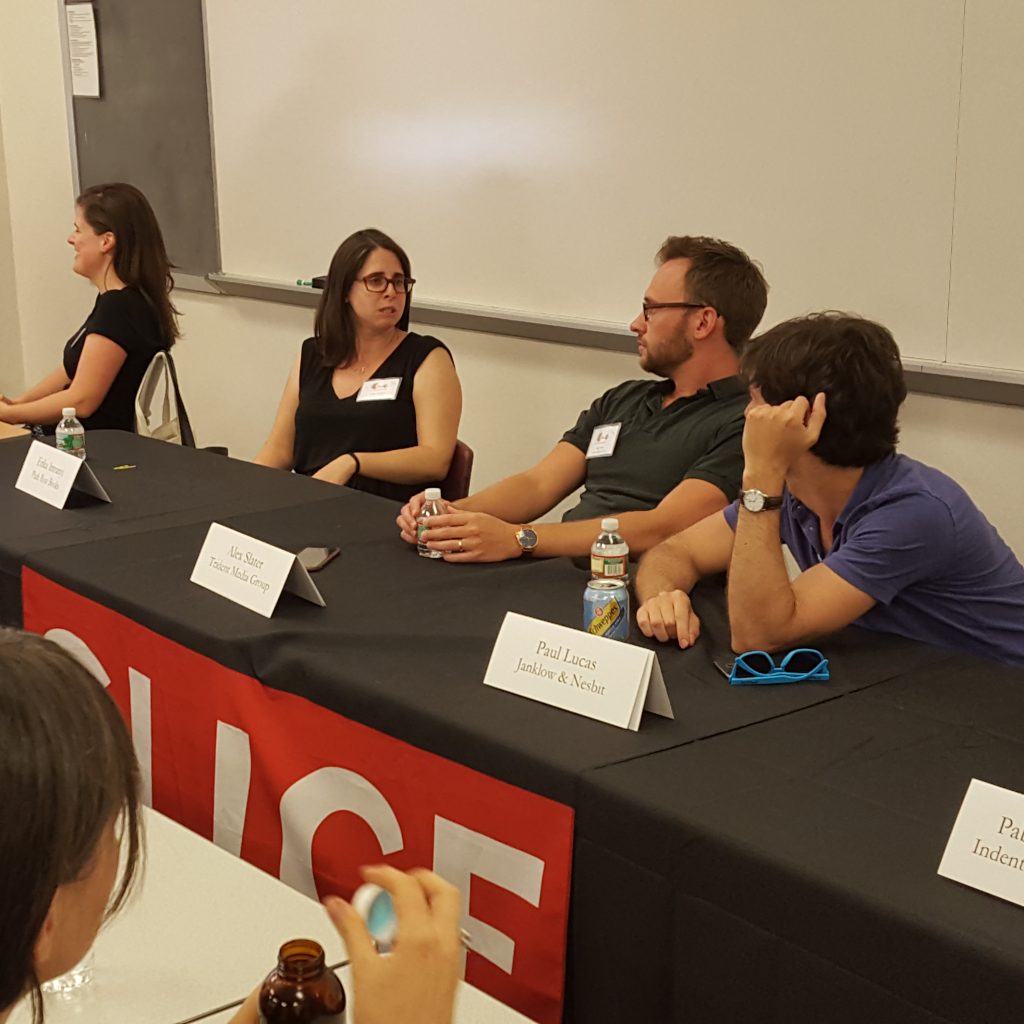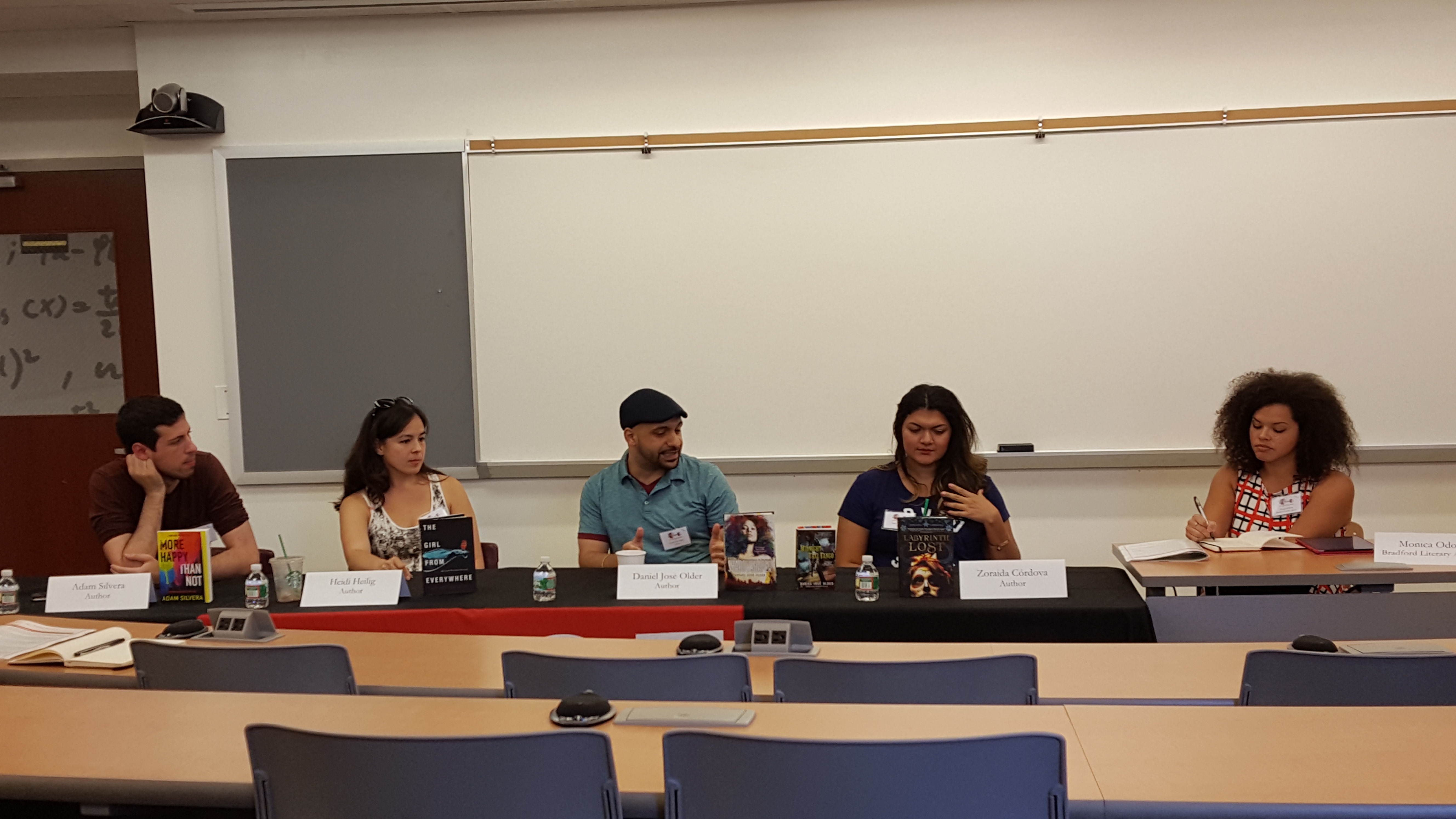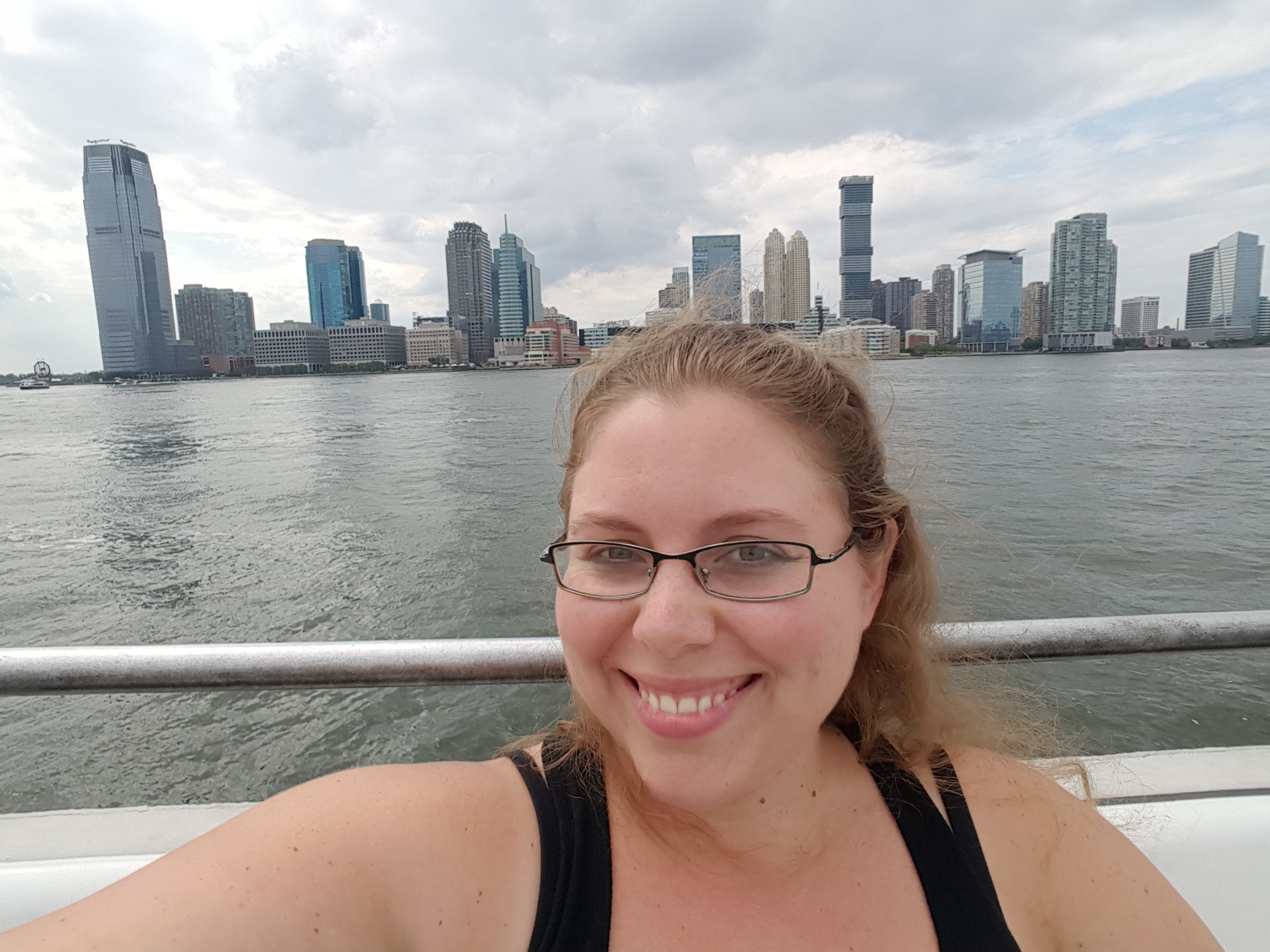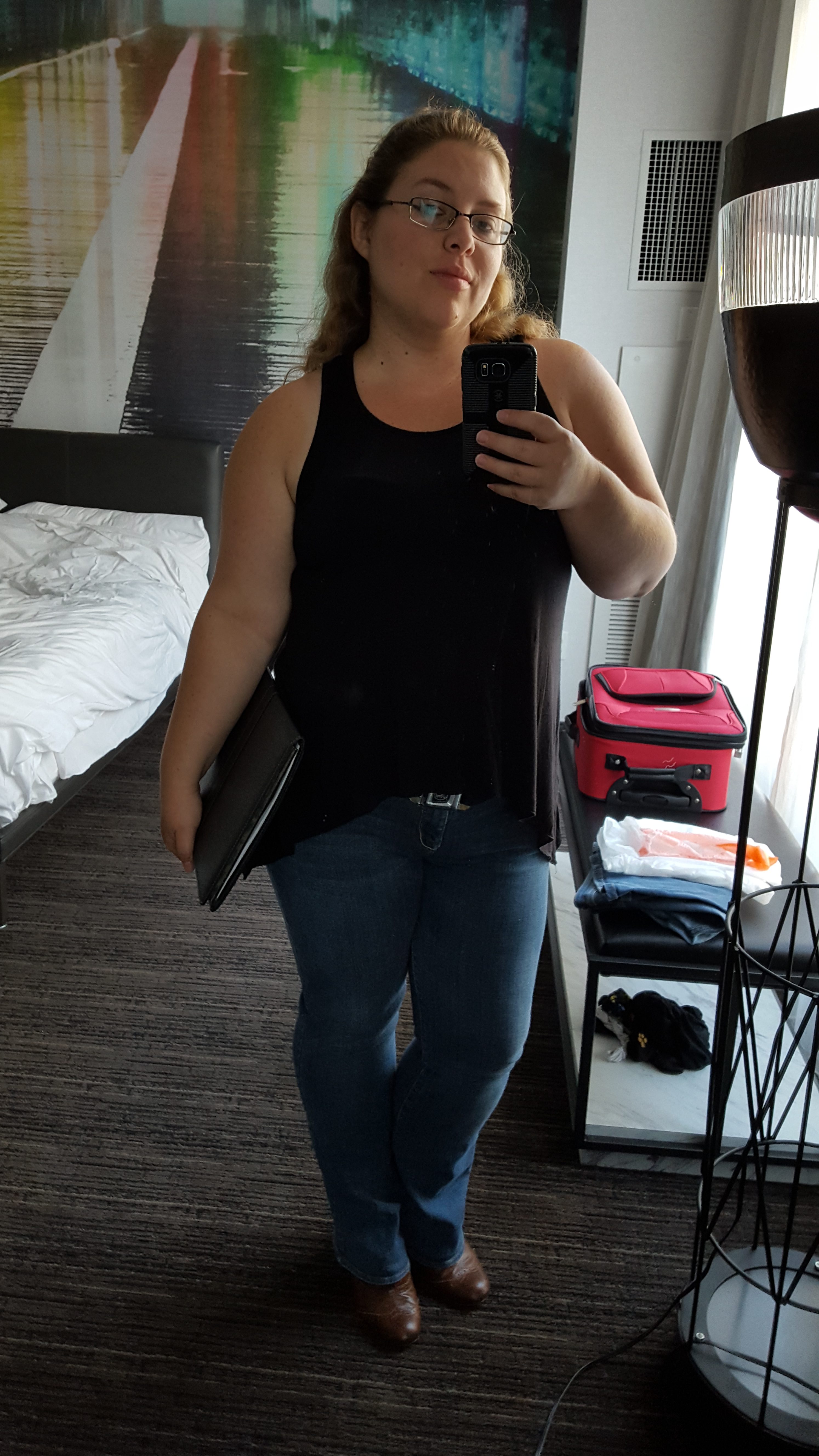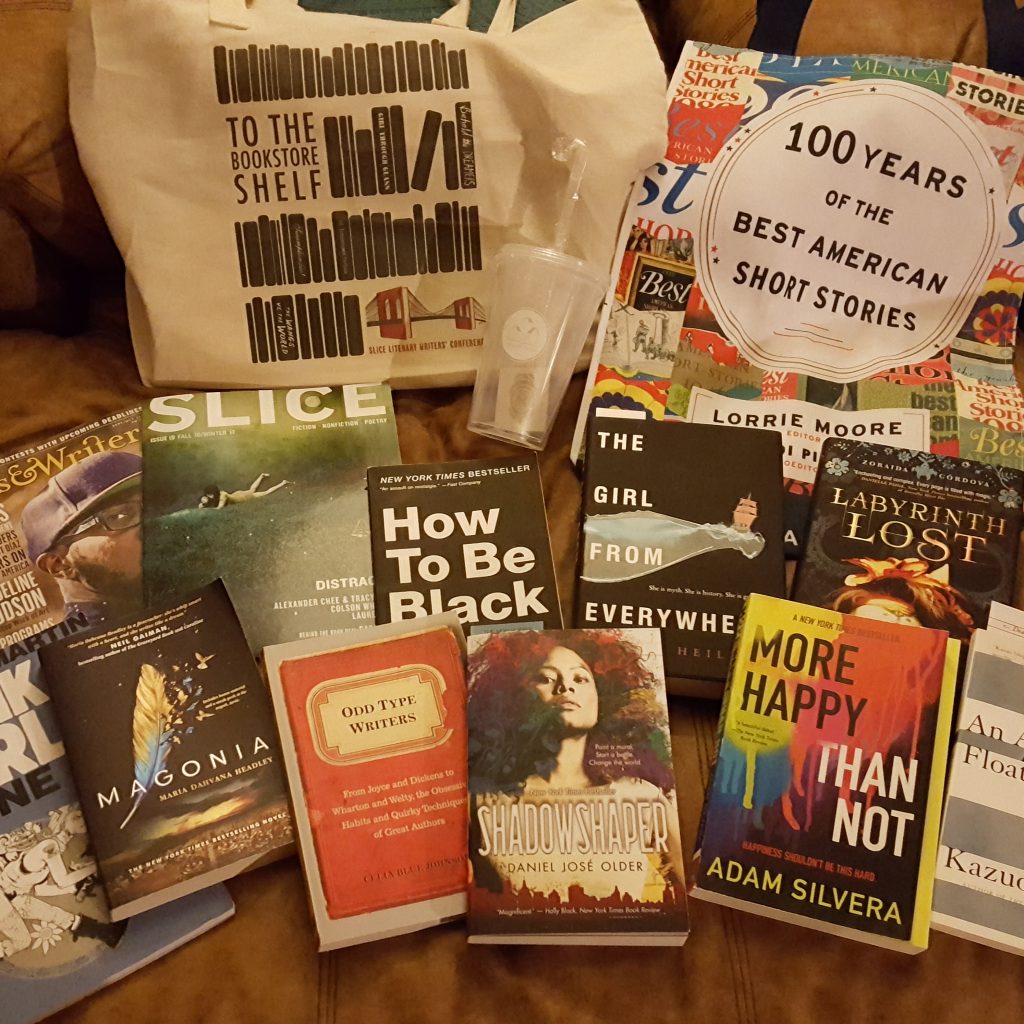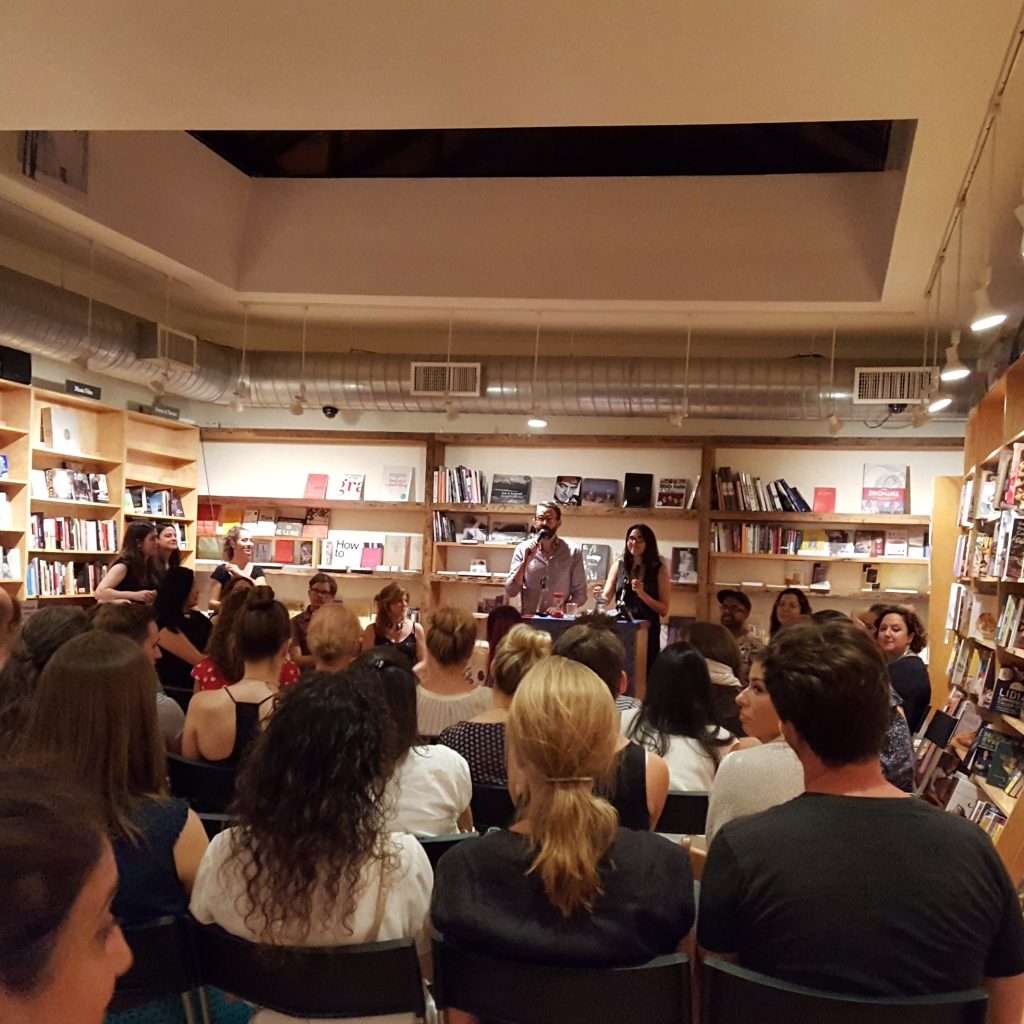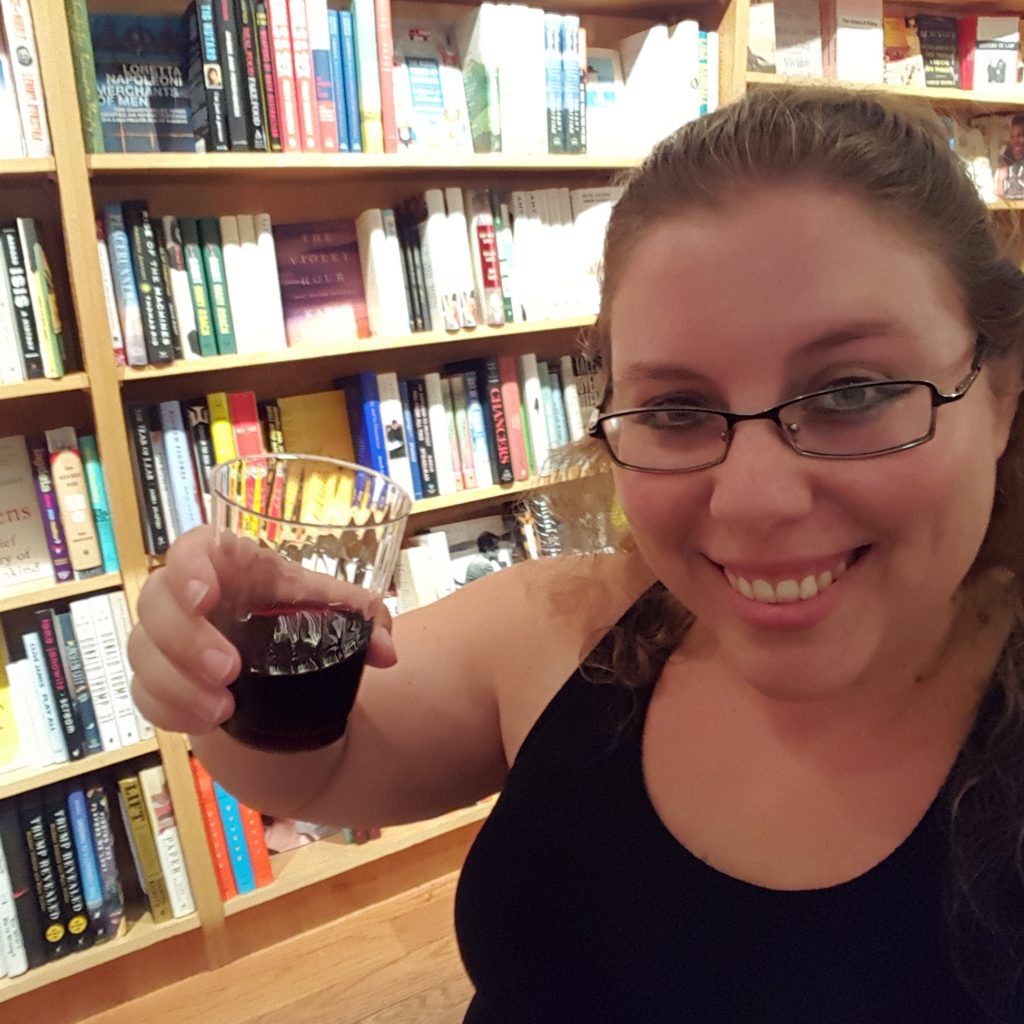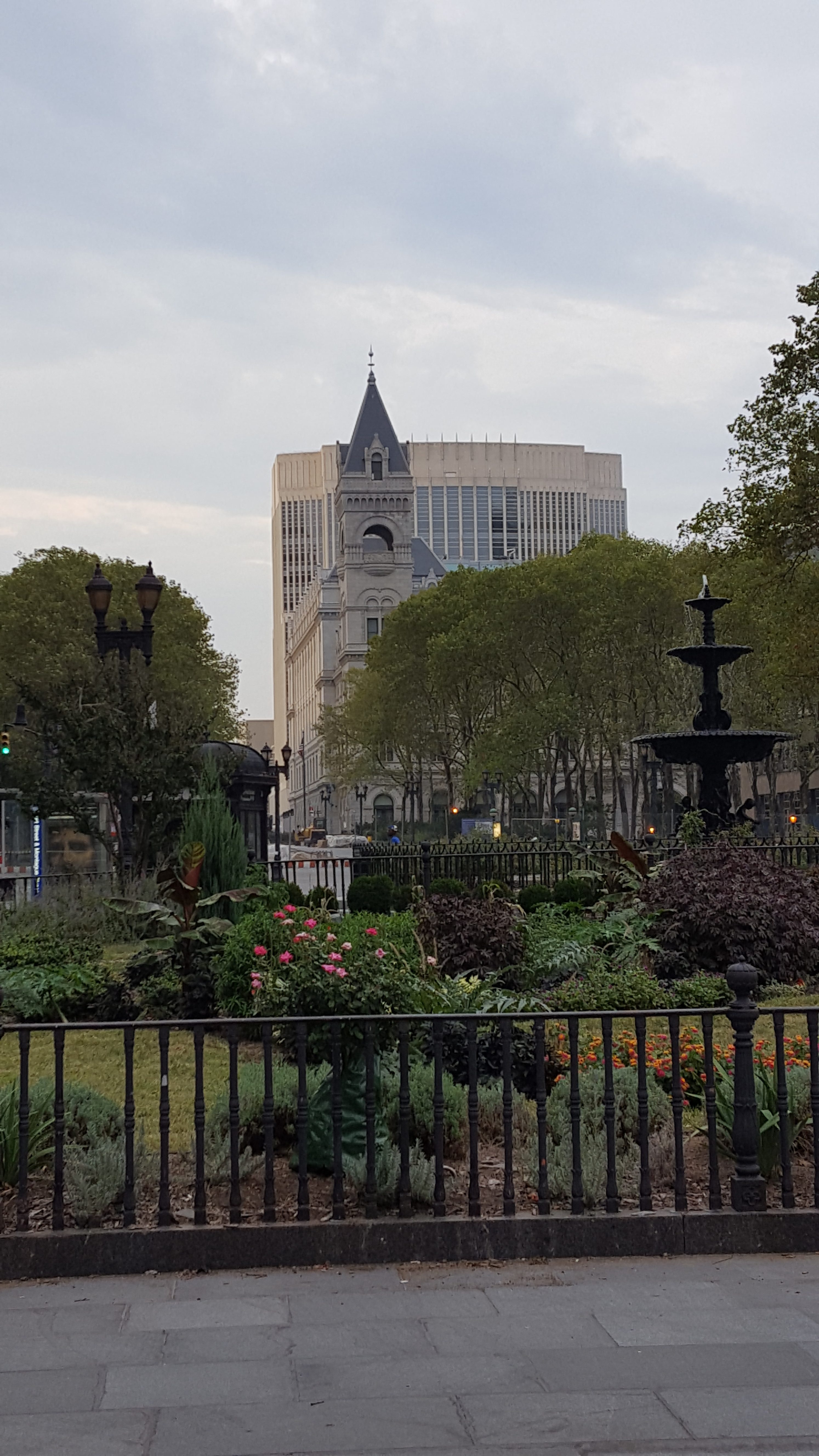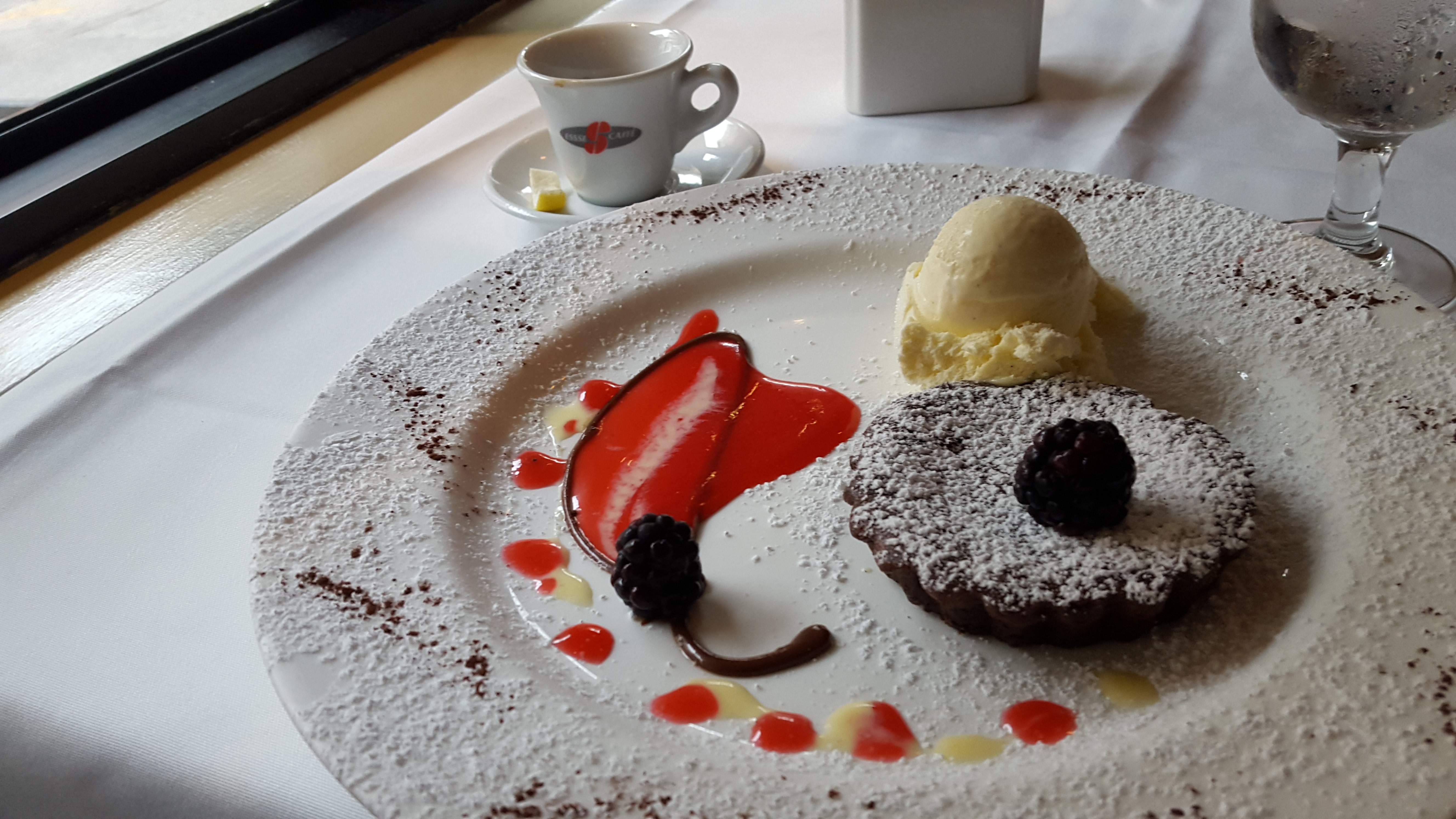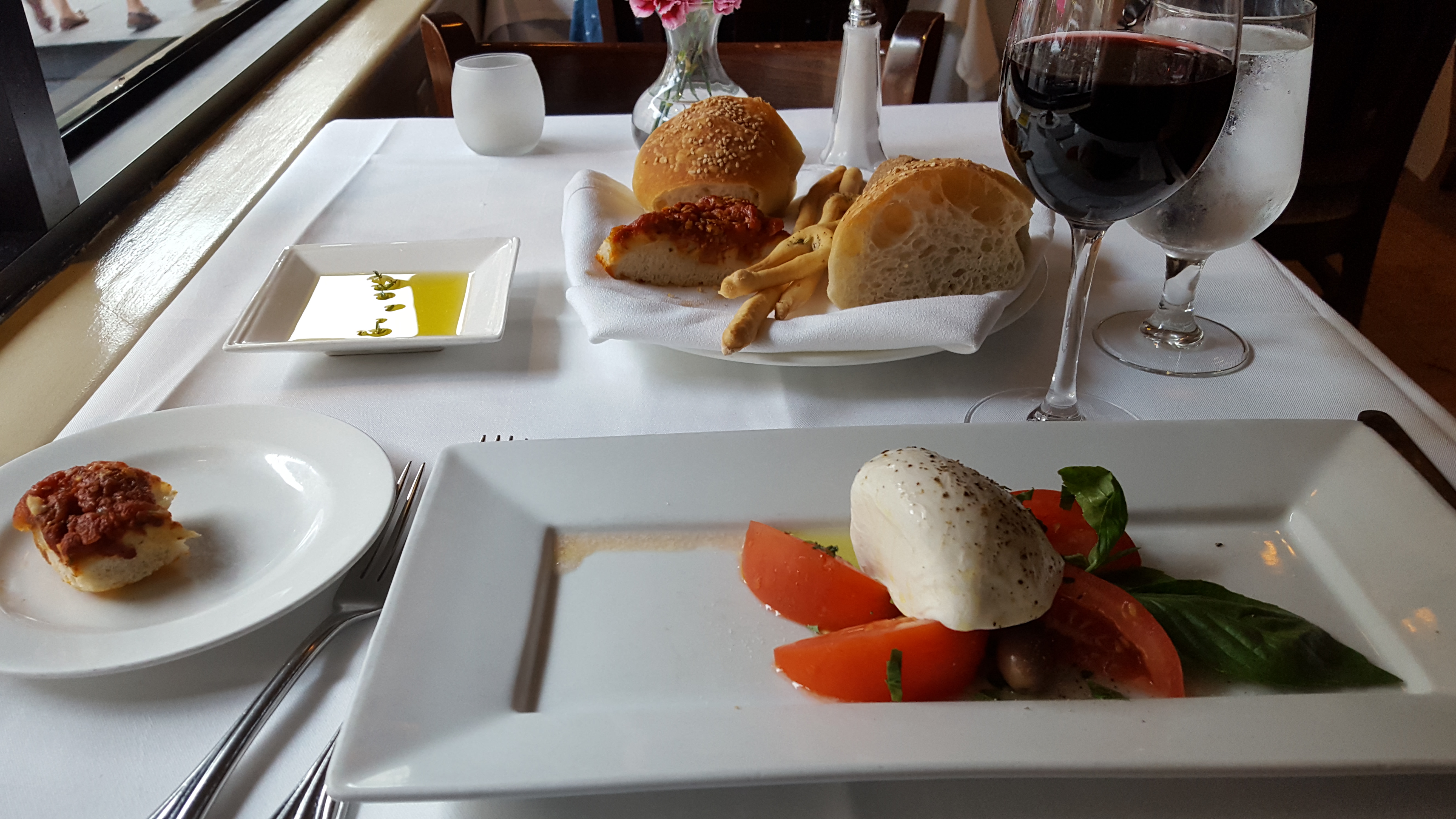Slice Literary Writer’s Conference 2016
#slwc16
Slice was packed full of information and insight. It was one of the smallest conferences I’ve been to yet, with rarely more than fifty people in a room at once. The keynote on Saturday filled the space to at least 500. The conference revolved mostly around literary works, poetry, and short stories and essays. Slice, itself, is a beautiful literary magazine, filled with information and story. The conference was a great experience. I was lucky enough to land a sort of accidental spot here when my friend and conference-buddy Joel Freiburger was unable to attend his agent one-on-one meetings (and, later, wouldn’t make the conference itself). The meetings weren’t refundable so he passed them on to me in the form of a conference ticket. I am so grateful for his thinking of me and I’ll definitely be returning the favor someday.
Until then, here are the conference notes from the panels I attended. There’s a ton of information and insight here from some really amazing authors, agents, editors, and publishers.
Independent Publishers
Panelists
Ibrahim Ahmad (IA), Senior Editor at Akashic Books focusing on Literary Fiction with darker themes
Tynan Kogane (TK), Editor at New Directions, a for-profit that focuses on poetry and literary
Brigid Hughes (BH), Editor at A Public Space that focuses on literary compilations and is opening for fellowships on October 1.
Marjorie DeWitt (MD), Editor at Bellevue Literary Press a nonprofit focusing on literary with scientific and medical themes and the only presenter on this panel whose press accepts unsolicited queries. Marjorie stresses that you should write in your query what draws you to a publisher and display a strong sense of your plot. She also notes that Bellevue Literary Journal is a separate branch from the Press.
Why Go Indie?
IA: What do you want out of the publishing process? Because they’re smaller, they develop close relationships with author. They’re more collaborative. Large houses have hard to perceive lines of communication. Ex. When a cover design goes directly to the author [in a small Indie Press] for their take on it as opposed to working through all of the hands in a large company first. However, big houses have the muscle [in marketing] to shove things down people’s throats.
TY: Big houses will get you more money, but less personalization and even editing. Large house editors have 30 projects going on all at once.
BH: Books can get lost in big houses. But again, indies don’t have that ability to push [in marketing].
MD: Big houses are looking for sure sells. [Smaller houses will take more time to help shape you and answer your questions].
What is the typical length of time it takes to publish once a finished manuscript hits your desk?
MD: Working with a smaller press and list, the lines of communication happen a lot faster, but it varies. Bellevue takes longer.
TY: 9 months for a finished MS to become live.
IA: Needs to have a pressing reason for it to come out in 9-15 months. Distribution takes a lot of time. Right now they have books preparing for late 2018.
This is How We Edit Your Book
Panelists:
Julie Buntin (JB), Editor at Catapult and author of Marlena, releasing in April 2017.
Matthew Daddona (MD),Editor at HarperCollins
Bronwen Hruska (BH), Publisher at Soho Press focusing mostly on crime and YA Teen, a new imprint, author of Accelerated.
Tiffany Liao (TL), Editor at Razorbill, Penguin Young Readers Group focusing on MG and YA fiction.
Maya Ziv (MZ), Executive Editor at Dutton, Penguin Random House
How Do You Edit A Book? Walk us through the steps.
BH: First off, can I just say, do not miss your deadlines. It’s not okay. Missing your deadlines means we actually have to get an addendum to the legal contract. It’s not a small thing. Don’t call your editor a lot either, the process could take months.
JB: First I start with an editorial letter. It will go back and forth, maybe, six times. We’ll have phone conversations. Meet the deadlines and don’t text me. (She hates getting texted by her authors when she’s hanging out with friends). Just trust me: if I say I sent your book to get a blurb, I did it. Famous people take forever.
BH: I’m a publisher so I’m not actively editing. But they’ll have meetings of about 12 people, a YA or Literary Editorial meeting [to talk with editors about the books that they’ve acquired. This is where editors will need to be excited and sell the MS to the publisher]. They publish about 45 new books per year, which is not that many. They really need to fall in love with the book. The editor comes to the meeting and convinces them why they want it. Sometimes it’s immediate, sometimes it takes months to decide. Another meeting takes place about everything they like and what changes should be made. The editor then talks to the agent who talks to the author about the changes. If you don’t want to make those changes? If the authors vision doesn’t line up with the publishers? Then it won’t work. You really have to research the publishing house. Trust them. Have conversations early on [with your editor] if you don’t like a direction something is going. If you decide you’re in it with your editor, then you have to go with it. There’s no going back.
MD: Know where the book fits [on the shelf]. Don’t worry about selling, trust that the publisher has a sales team. It’s a long process. Get it to the best place it can be. Speak with your editors. He actually DOES text authors, unless it’s a really annoying question. He’ll send an editorial letter after reading to the agent/author, revisions will take one to two months, then he does line edits and voice honing, then they’ll remix whatever they need to. The whole process takes 4-6 months.
TL: Story and characters are the first thing she edits for, then she does a round for voice, then the line edit. Communicate and don’t take things personally.
MZ: Editors all have different visions. Stick to your vision. Her first step is character and world edits. Be in touch with your editor. She loves when you ask [your editor] if you’re thinking about adding a plot twist. Don’t be too excited during that first call that you’re swept into the moment. Sometimes she finds that authors are just so excited with the process that they say yes to everything during that first call with an editor, but you have to think about your vision. You can’t agree if you don’t.
Can you describe the ideal author to work with?
BH: Platform. Getting into a community of writers, even working at bookstores. Someone that can bring something extra to the process. Be online.
MD: You need a platform if you’re nonfiction. If the author can surprise them with a strong MS. Be excited about your own MS and topic.
MZ: Strong grasp of subject matter. Likes being proven wrong.
TL: Subject matter, love your own characters, don’t follow trends.
JB: If they wrote a book I love! Author/editor disagreements are great, especially if her feedback gets heard.
Marcela Landres, author and editor of How Editors Think, moderator: Write what you’re passionate about.
What would push the decision for an MS from the cusp of No to Yes?
TL: Platform, willingness to put in some elbow grease, the will to work, if the concept is strong enough, then yes.
BH: She’s the opposite. She needs to love the voice, characters, and world.
MD: For Nonfiction, it’s “Why Now?” Why is this relevant to publish right now?
BH: Publishers love books, but marketing can be concerned (ex. “we’ve seen New York stories, does it have to be a NY story?”) They’ll ask “what can a salesperson say to Barnes and Noble to sell the book?”
JB: Everyone has to be excited about it. Their team only publishes 10 to 12 books a year. If editors ask for revisions before the offer, take that seriously.
What Percentage of Books Make it Through the Editorial Meeting?
MD: Do you want the truth? Really? Out of about 800… maybe six. But they love so many. He has to pitch to the room. If there’s a single moment of doubt about the book when he’s pitching it, it’s a real moment.
TL: Knows how to fix things before the meeting. If she senses that they’ll have a problem with something, she’ll know how to tell them that she’ll fix it. About 50% get through.
MZ: They have to realize how excited you are about it.
BH: Have a vision. Most get through, 75 to 80% can get through. She trusts her editors.
JB: About the same for Catapult, a fairly high number.
*Note* Please note the differences in the numbers and how those compare to the SIZE of the house these people work for. MD is at HarperCollins. As they went down the line with more books getting through, the houses got smaller. It’s right there in the numbers.
Do you ever pass projects on to other editors you know?
MD: Sometimes he passes if he’s not the right editor for a project. [It’s still subjective].
MZ: Passes at HarperCollins, but at Penguin, no.
JB: Some big publishers will pass to the smaller house (her).
BH: Doesn’t pass on to others.
ML: Simon and Schuster barely has time to reject, let alone pass it on to someone else.
TL: Plus you’re adding to your colleague’s workload so it has to be pretty great.
How do you read? And where do you find MS’s? From the Slush?
BH: No slush. Too much. Gets 100+ a week. Twice a year, maybe, she’s found something in the slush. Most just start reading the MS, [not paying as much attention to query or synopsis.]
MD: Will seek out other writing the author has done – in magazines, etc.
TL: Gives it 20 pages. Character and story have to grab her.
JB: No slush, but they look about 40 pages in.
ML: Loves slush! Reads about 50 pages.
What is your relationship like with agents? What is the importance of having one?
MZ: Has certain agents she likes, if she receives a submission from them that will go to the top of the pile, but she still reads everything.
BH: Agents that know Soho’s taste is international is important, the book can’t take place in a specific setting. Some agencies are cheesy and she feels bad for writers that end up at sloppy houses.
MD: Agents are those quirky, weird friends you check in with. They need to be passionate too. Long term, but can be frustrating.
JB: Ask agents if they know of indie lit publishers, because not all do.
Keynote: Authors in Conversation
With Karen Russel, author of Pulitzer Prize Finalist Swamplandia! and short story compilations Vampires in the Lemon Grove and St. Lucy’s Home for Girls Raised by Wolves, and Rob Spillman, editor of Tin House Magazine and editorial advisor at Tin House Books.
“If you show [your work] to someone too early, it’s like an ultrasound of your dream”. – Karen Russel on waiting until the story has taken shape before beta readers look at it.
“It’s such an accomplishment to get dressed and be in the world that making an avatar and saying witty things is [daunting].” – Karen Russel’s views on having an online presence – and why she doesn’t.
“I’m really wary of any writer that says “oh my novel is going so well.” – Rob Spillman on the eternal struggle of being a writer. (Because, mmm, no it’s not.)
What advice to you have for new writers or writers that are feeling burnt out?
Karen Russel: read poetry.
Rob Spillman: read everything, look at other arts, like music, fine art, movies. Then let go of what you’ve written. He adapts a quote from Leonardo Da Vinci: “Great novels are never finished, just abandoned.” Kurt Vonnegut looks back over his novels and says that his books are him at various ages. He can see how much he’s grown by what book was published in his life.
Creating Character
Panelists
Jade Chang (JC): Author of The Wangs vs. the World
Idra Novey (IN): Author of Ways to Disappear
Imbolo Mbue (IM): Author of Behold the Dreamers
What is the first thing you focus on when creating?
JC: Basic setting comes first, then voice.
IN: Focuses on the tension and suspicion among characters first
How do you begin creating a character?
JC: Basically you just gossip about people you made up. How they feel about everything. What they wear, what they eat, etc. She does that “free association About Me section” where she writes a list of things a character likes – for every character.
IN: Focuses on what characters don’t know, especially about each other.
JC: She rejects creating loveable characters. She wants characters that are interesting, not necessarily likeable.
IN: Strengths and weaknesses aren’t fixed, they’re fluid. Throughout our lives we change. Our likes and dislikes change, and that’s how she views he characters: they change over time. She feels it’s fascinating to have her characters that she knows so well viewed by a character that is a stranger to them. What does that person see them as?
Do you know where your characters will end up?
IB: She doesn’t know the end for her characters. She begins and lets it flow
JC: Knows character-ending in plot sense and emotional arc sense. You have to think of what they desire and what stands in the way for each character.
IN: Has a vague idea for the emotional ending sense.
How do you handle small or side characters? Do you give them the same treatment?
JC: Just makes sure to avoid clichés when small characters are involved (Indian taxi driver, Mexican maid, etc.) and if they DO have to be cliché, she makes sure they’re special in another way. They just need contrast.
IM: Makes even small characters interesting standouts. Uses her example of a woman with seven children. She’s a small character, but there’s something very interesting going on in her life.
Making a Case for Your Book
Panelists
Emily Griffin (EG): Executive Editor at HarperCollins
Erika Imranyi (EI): Executive Editor at Park Row Books
Paul Lucas (PL): Agent at Janklow & Nesbit
Alex Slater (AS): Agent at Trident Media Group
Pablo de la Vega (PV): Agent at Indent Literary Agency
Let’s Talk About the Elevator Pitch
EG: You need a logline: one sentence.
EI: There will be a team of 6-7 people that editorial will have to convince to be excited about your book. You have to make salable sentences. Often she uses X meets Y. Sometimes a brief sentence works: Unexpected friendship in a carnival setting.
AS: During his meetings, there’s a first sentence then other details will follow.
PL: He personalizes the pitch to whichever publisher he’s meeting with. Compares to previous books bought by them.
PV: Does pitches by email. He works a lot in international sales, so sometimes data and language barriers are difficult over the phone. He will adapt his pitch to what is in the market currently. Usually he writes basically a short couple of paragraphs, filling the email with as much interesting information as possible.
Jeff Kleinman (JK): (Agent at Folio Literary Management and moderator for panel) Attempt to query without character names to force yourself into an interesting description of them, i.e. “transgender lion”. Also, suggests that you start your draft-query with “Dear Lucky Agent” so that you feel like you have some confidence and gusto while you write the query, then of course, personalize it with “Dear [Agent Name]” before sending.
AS: A good pitch makes you think “I wish I’d wrote that!”
PL: Don’t weigh it down with details. Shorter is better.
EG: She’s looking for contrast and surprise in the X meets Y of the query, but don’t make it improbable/weird. It can’t be Jurassic Park meets Crime and Punishment. It’s just unlikely.
PV: Never uses X meets Y. When emailing and pitching people from international places, the foreign meanings and feeling of books can lose meaning in the query.
How can you boil it down to one sentence? Any tips?
EG: What is the core, driving force, or relationship of the novel? You have to be able to boil the entire idea of your book down to one sentence. Thousands of books are able to have it done. If you can’t, then there is a big problem with your book. You have too much going on.
AS: You’d be alone if you can’t boil it down. Read back copy of books. Find the rhythm.
EI: Know the market, ex: voice set in the world of ____ (X meets Y).
PL: Horror is selling well, everyone is talking about Stranger Things.
EG: Always hint at plot twists, but don’t say what it is straight out.
AS: X meets Y can hint at twists too, just based off the titles you choose.
PL: Don’t ever pick the mega-author. Their books and successes are not replicable. Pick contemporary authors from the last 5 years.
EG: When Authors/Agents pitch to Editors there’s no hyperbole. Don’t oversell it. But when Editors pitch to Publishers, yes, they mention big-time authors and sound confident.
PL: X meets Y isn’t affected by that though (see above).
What about Hype?
EG: She has to plant the seed for the hype they’ll have to drive when pitching to Publishers.
EI: Hype doesn’t matter as much as comp books. Look at the audience, know them by keeping up with what’s coming out.
PL: You don’t always have to use books either, sometimes movies and shows work better to get your point across.
EG: Have some emotional resonance in the pitch. The title of the book, itself, doesn’t matter, but if the title you’ve given your book is good, then yes, it CAN matter. It drives it home and creates some emotional resonance. It could be an asset.
Earlybird Talk with Amazon
Neal Thompson, author relations director for Amazon
Julie Buntin, author of Marlene and editor at Catapult
Ben Tomek, Marketing Director at Flatiron Press
Neal Thompson says to check out these things if you’re marketing yourself:
- Amazon Reviews and Readers
- Has Best Books of the Month
- Publisher’s send in books to them to be on the list
- Kindle Singles
- Think long short stories. They’re longer than typical shorts or essays, but shorter than novellas.
- Curated, agents usually submit work to it.
- It’s fairly cheap to submit
- 10,000 to 20,000 words
- All genres
- Host Interviews
- They’re recently beginning to publish old journalism pieces as well
How should we begin marketing ourselves?
- Start building a community of writers and readers
- Could do author interviews at panels with fun questions to post on blogs. Creates long term relationships and job opportunities. Ask fellow authors how they’re marketing their books.
- Tell authors if you like their work, again relationships, even if that is the end of the interaction, it means something.
- Take out a piece of your novel and submit it to literary magazines
- There was one short story author that had 30-55 rejections before succeeding and receiving a Pushcart Prize and the path was set. So keep trying!
- Write pieces on internet and blog – funny stories, short stories, etc. – to get readers. Get writers to share.
Also, side note, check out DIY MFA by Gabriela Pereira.
YA Speculative Fiction and Diversity
Panelists:
Zoraida Cordova (ZC): Author of Labyrinth Lost
Heidi Heilig (HH): Author of The Girl from Everywhere
Adam Silvera (AS): Author of More Happy than Not
Daniel Jose Older (DO): Author of Shadowshaper
(BTW, I bought ALL of their books at the conference because they all sound amazing. If you like YA, or just, you know, good books, check them out.)
What is SpecFic?
AS: SpecFic covers all elements of fantastical literature. Sometimes it can be 90% realistic and 10% fantastical. It asks the questions “What If?” Uses Lena Dunham’s books as examples.
DO: It’s an umbrella term covering all fantasy and sci-fi books, including magical realism.
Let’s Talk About Diversity
AS: He has a gay Puerto Rican character and is getting flown out for diversity panels. He’s, honestly, tired of that being such an overwhelming part of his book because it’s really a small piece. He thinks he mentions that he’s Puerto Rican three times in the whole novel. He could have taken that out and no one would have known the character’s ethnicity. And yet, that’s what everyone is grasping on to.
DO: However, diverse characters and covers are still getting in hit in sales.
AS: You want to get the book into reader’s hands, but you also want to let them feel safe reading it in public. [A cover that is blatantly gay or diverse will see hits in sales because people won’t feel safe reading it].
DO: He can’t believe it’s 2016 and they’re having this conversation.
ZC: But remember this wasn’t a big part of conversations five years ago when we were [querying] our novels. And it’s hard when your publisher’s mostly white. It’s hard to explain to them why a Spanish word is conjugated the way it is (even if it’s not correct) because that’s how we say it. She got rejections that said “oh, we have our Latino book for the year”.
DO: Yeah, they wouldn’t dare say that now.
ZC: Right, but this was back then. But it’s still happening. She’ll be asked to be on a panel with 4 white women and call it a Diversity Panel. So, does she get on that panel? It’s hard if you don’t have another outlet to get your book to people. It’s frustrating when readers ask about her childhood and the stories her grandmother used to tell her growing up and say things like “I love Latin American characters” – do white people get these questions too? Don’t ask permission to write a book. You fear adding to stereotypes. Just don’t write it for a hook.
HH: Yes. You’ve heard of love versus fetishizing? Well, you have to be in love with your characters. Don’t fetishize them.
ZC: There was a book written by an Asian woman who had a cover design with an Asian woman on the cover, but they didn’t want the woman’s face showing, so they shrouded her in shadow. But then a bunch of white people writing about Asians would come out and all those Asian women had their faces on the cover. That’s a sense of fetishizing it.
What is the definition of YA, in your opinion?
DO: The central crisis of the book forces the MC to take a step toward adulthood. Think of your own legacy, the marketing.
ZC: Tone adds to it. Pacing too. In YA, you won’t usually spend 2-3 pages describing a rug like you do in literary adult.
(This panel was very conversational, and here we traveled back into a conversation about diversity and privilege and writing when you’re white)
DO: Privilege is in your favor. You can be more outspoken if you look a certain way, like a white cis het male. You have to speak gently, but be firm.
HH: A lot of people have that one gay friend or one black friend that they ask everything of, but get out there and make more real relationships.
AS: Yeah, I had one guy ask if I could look at his character to see if I can spot anything that was [culturally insensitive], but guys, you have to remember. Everyone has their own stories, everyone grows up differently. I might catch some things, but I’m not going to catch everything.
ZC: Some people are like “oh, I’m going to go study” – what? You’re not Indiana Jones. Just make real relationships with people. [Immerse yourself in the culture].
AS: Yeah, I guess there are sensitivity readers now too. I don’t know about all that. I guess it’s good, a step in the right direction.
How Will it Sell?
Panelists:
Carrie Howland (CH): Agent at Donadio & Olsen
Stacey Barney (SB): Senior Editor at G.P. Putnam’s Sons/Penguin Random House
Terra Chalberg (TC): Agent at Chalberg & Sussman
Salability VS. Love: What goes into the decision for an MS?
TC: What’s like it that is out there? Only successful, but not runaway successes count. Why will yours sell? Because those have sold.
SB: [Comps] can help a book sell. It helps if they love it. Literary won’t be a runaway success, but they’ll love it and by the time the author is on book 3 or 4 they’ll have a following. They have to love it so they can convince others to.
CH: Comp titles within the last 5 years only. If it’s in the bookstore already? Then the title is already over. Don’t do trends! Just love what you write.
SB: Enthusiasm and passion will transfer to the people who are working to sell it – agents, editors, etc.
CH: If I love voice and writing, I will help with plot if I love it enough.
SB: Read the staples of your genre and read what’s recent. It will help you avoid tropes.
Breaking Out the Debut Novelist
Panelists
Rachel Fershleiser (RF): Executive Director of Audience Development, Houghton Mifflin Harcourt
Ryan Fox (Fox): Editorial Director at The Author’s Guild
Paul Morris (PM): Director of Literary Programs, PEN American Center
Miriam Parker (MP): Associate Publisher at Ecco Books/HarperCollins
How does a writer breakout? Tell us about the online presence
RF: Social media is so important – follow the person, sign up for newsletters.
RF: When should you have a website? Today, yesterday. If someone wants more information they should be able to google you. Take control of that search. It doesn’t necessarily have to be a website.
MP: Think large search engines too, because they come up first in Google. Twitter, Facebook, etc.
Fox: Publishers get excited if you have a great website.
MP & RF: But don’t spend a ton of money on anything. You do not have to!
RF: At least have a Twitter handle close to your name, a bio that says you’re a writer, a link to your site, and every now and then tweet about things like going to conferences or books you like.
MP: Think of yourself as a brand, but don’t worry about pressure to be hip or funny. Just write the ideal version of yourself and who you want to be seen as a writer.
RF: Be yourself as a reader. Just talk about books you like.
MP: Thank people for podcasts, books, etc. Get your presence seen
Kate Freeman (moderator, Associate Director of Publicity, Riverhead Books): Buzzfeed Emerging Writer’s deadline closes October 1, 2016. You could win $12, 000!
PM: Check out PEN Fusion Award for NF about global/multicultural issues.
Should we publish in magazines? And where do we go to find them?
Fox: Entropy Magazine’s “where to submit” has lists of magazine entries that you can submit work to. Just tailor your entries to magazines that are publishing your type of work.
PM: Poets and Writers Magazine has a wealth of information
RF: Lenny Letter is a good discovery. Liberty Hardy talks about what books are out this week. What’s being published, you can find in Publisher’s Lunch, PW Publisher, Publisher’s Marketplace.
Fox: AWP Program and Conference is great. The conference has over 15,000 attendees, it’s sold out every year. Book Expo conference is a good one too. AWP is great though for face time.
RF: Litsy, Catapult, LitHub – they all run essays and features. Electric Literature.
PM: One Story Magazine is cool. You sign up and it’s pretty cheap and you get one story in the mail every week. It’s a new author every week. Julie Buntin had one and is now becoming a novelist (Marlena debut in April 2017)
So how else can we market ourselves to debut?
MP: One person did an “ask a debut novelist” program where the author answered questions about writing for promotion. It was picked up by Salon and Tumblr.
Fox: Literary Debutant Ball – where debut authors have a ball and walk down the aisle with their mentors.
RF: Have you ever heard of Katamari Damacy? It’s a game where this ball rolls around the city and things stick to it. As more things stick to it, the ball gets bigger and bigger and you pick up larger items. Well, that’s how debuting as an author is. You sort of roll around in all the little places, but keep going, keep getting bigger.
Kate: You can do readings in your hometown. In Brooklyn there’s Dead Rabbit, Lamprohonic, Franklin Park, Liars League. Participate for first publications.
RF: Doing a lone reading that you set up yourself garners your family and friends. But doing a reading during an event with other readers, that’s where you’ll get more facetime with others that will read your work and will open more people to you.
MP: Get out there and talk to and meet people.
How to Spot the Next Generation of Writers
Panelists
Lisa Lucas (LL): Executive Director of National Book Foundation (Identifies a pool of people, not the book, that will get the National Book Award)
Sonya Cheuse (SC): Publicity Director of Ecco/HarperCollins
Isaac Fitzgerald (IF): Books Editor at Buzzfeed (Book Editor finds authors and gets them to write a paid essay to put on Buzzfeed and link their books).
Vanessa Mobley (VM): Executive Editor at Little, Brown
What is Voice? Hook sell?
LL: Move beyond mimicry. You want to be like those you admire, but when you shed that feeling, that’s when you find your Voice. Hooks sell, yes, but strong voice can sell too.
IF: Even if your book is weird, if your voice is strong you can pull it off. It’s uniquely you.
SC: There are certain things that become guaranteed sales. Universal, age old tales (like large, quirky families, i.e. The Nest), strong females, dynamic males.
LL: Pluck the things that sell from your book, those are things people will talk about. [And make sure those things are in the query!]
SC: Titles and covers can be trends too, just like concepts. Books that last create conversation.
IF: Conversations COULD happen after you’re dead, though.
Build Community
IF: You build your community. YOU DO YOU. He had an author once that wanted to do a reading/signing, but he wasn’t online at all. He tried to tell the guy that he needed to invite people, be online. But the guy said no, he would hand-write his invitations. When they got to the reading, no one was there. It was completely empty. So Isaac (IF) started calling around trying to get people to show up – anyone – just to fill the seats. And then, as if it couldn’t get worse, in comes this man’s most famous friend. And he sees him at this reading with no people. Isaac is just beside himself. But then… people start trickling in. And soon the room was full. I mean, not a lot of people, but there was a butt in every chair. And here was his author with his hand-made invites made for his core group of people that showed up. That’s what he means by get to know your community and build a following.
SC: Chat with booksellers, authors doing signings. Ask authors how they market themselves – this will help you figure out how to market yourself.
We all know I love my end-photos of the journey.
Leaving Jersey behind, on the way to Brooklyn:
It is super important to find your confidence when attending conferences. You have to be able to talk to people and be yourself. And sometimes that means wearing the tank top when you promised yourself you wouldn’t.
My amazing haul from the conference! Look at all those stories waiting to be read. <3 They gave away free tote bags with tons of swag (left) and the Random House cup and tote bag (right) my team of five won during Literary Pictionary!
This is from the exquisite corpse reading at BookCourt on Saturday night. They had about six acclaimed authors participate. It’s a game where the first author reads one sentence from a hat then speaks for a minute, building a story. Then the next author (who has headphones on, unable to hear the previous bit of the story) continues using the last sentence of the previous author. And so on. We ended up with one crazy journey about buffalo, animal orgies, and working at Taco Bell in a snow storm before the aliens came. I’m pretty sure it was about mental illness and smoking laced weed.
GREAT after-party. But how could it not be? They grouped a bunch of writers into a bookstore and gave them free wine!
Brooklyn, looking out at Columbus Park
Accidentally ate at a fancy restaurant for lunch. Luckily it wasn’t too far out of my price range! This gorgeous plating was from the daily specials menu at Queen, Italian. A chocolate torte with vanilla bean gelato and raspberry syrup. Yum! Oh and most definitely an espresso.
More beauty from Queen – complimentary bread and thyme-infused olive oil, a chianti, and a caprese salad.
